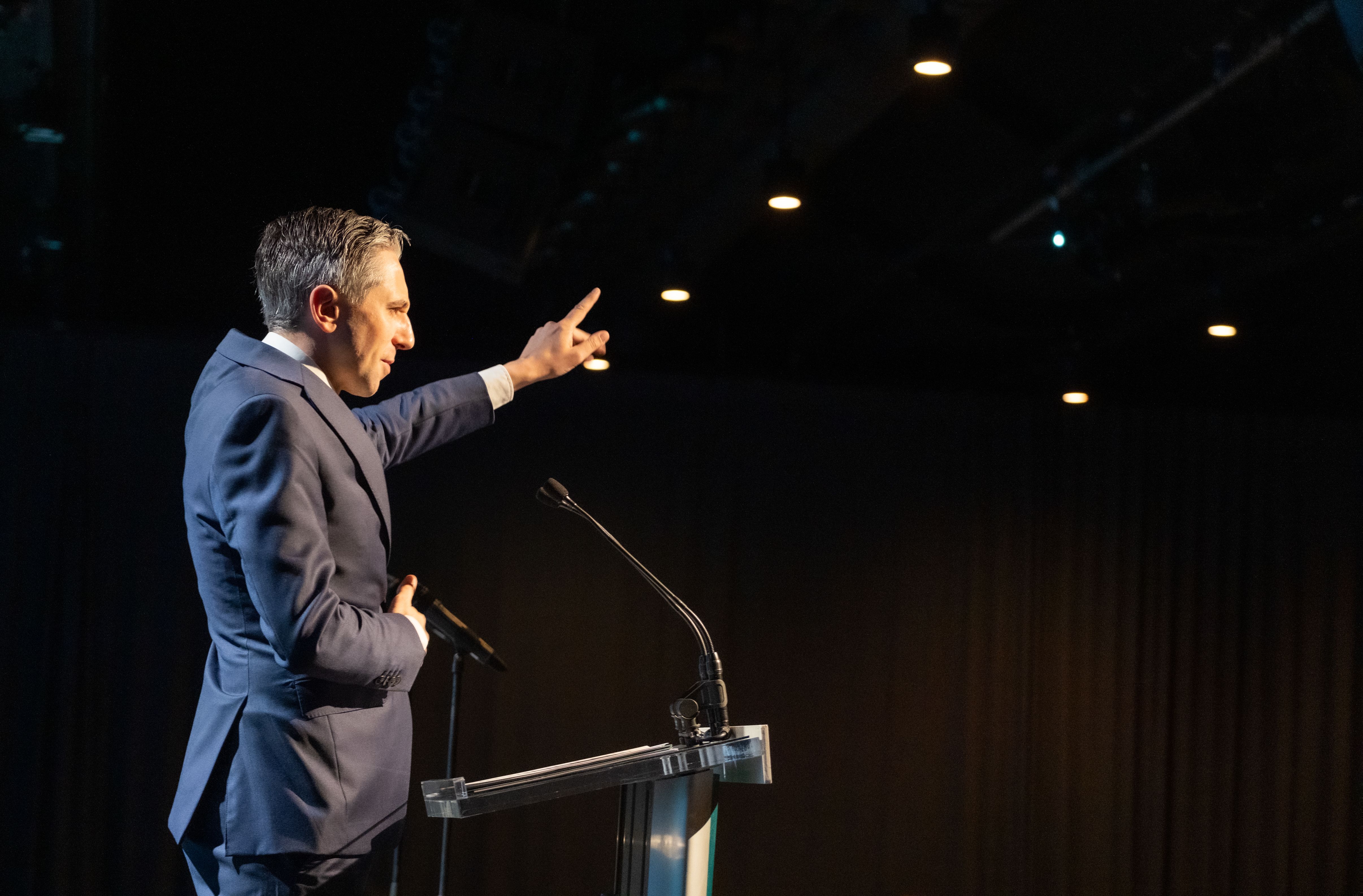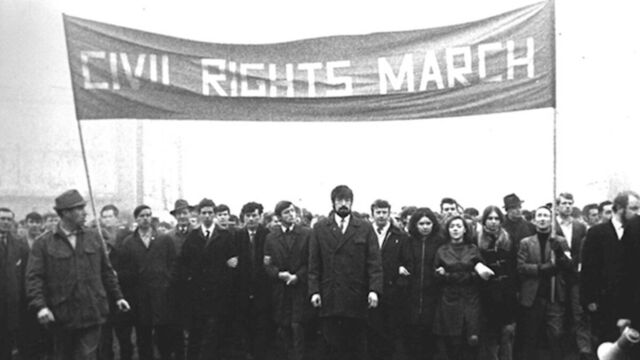BEING a politician means you face a number of dangers similar to those faced by a high-wire artist.
You must make sure not to lean too much to the left, or you risk plunging into the abyss. Too much to the right risks the same. You must go forward, but this forward movement must proceed with caution or you’ll lose your footing. Maybe worst of all, you can’t go backwards, so better not try: walking backwards on a high wire is harder than walking forward, which is hard enough.
For over a hundred years now, the South’s politicians have been on a high wire. Officially they’re supposed to work for the unification of their country (yes, Virginia, that’s Ireland); in practice they’d rather the South’s public forgot about that bit.
And they do. You’d think that the kidnap of a family member would be at the front of every politician’s thoughts, but the South’s government, over the decades, has encouraged Southern citizens to think of ‘up there’ as an alien place best not thought about. The more dangerous and foreign you can make it, the less risk you’ll find yourself out on that wire feeling a bit giddy.
At the same time, there are occasions which call for gestures that’ll suggest you’re really up there on the wire, doing your sensible best. We saw that when Micheál Martin pledged €3 million of Southern taxpayers’ money to constructing a bridge at Narrow Water, when he put €600 million into the completion of the A5 and when he made a €50 million donation to the reconstruction of Casement Park.
True to their word @MichealMartinTD & @LeoVaradkar uphold their commitment to Narrow Water Bridge. The shared Island fund became the only route to delivery as funding and commitment from former Ministers fell so many times within the NI Assembly. #NarrowWaterBridge #PJ❤️ pic.twitter.com/ki7tMSU44Y
— Sinéad Bradley (@SineadBradleySD) February 20, 2024
A high-scoring high-wire act.
But don’t be deceived. That may be part of Micheál’s Shared Ireland project, but in practice it’s the money the South pays for making partition bearable. It keeps the audience’s mood positive, since you’re inching forward on the wire just a little bit. Granted, at this rate of progress it’ll be the next millennium before we make it to the other side and Irish unity.
But so much depends on the optics. Aren’t we headed in the right direction? Surely no right-thinking person could gainsay that. Besides, if the Dublin government were to come out and say that Britain is in the wrong to claim jurisdiction over the six north-eastern counties, it would risk making some northern unionists very cross indeed. People can be stubborn over a variety of topics, but if you want to see stubbornness on steroids, ask Micheál to request the return of the sawed-off NE of his country.
Because actual Irish unity is the one thing that neither Micheál nor Simon actually wants. For over a century now, the political spoils have been shared between Fianna Fáil and Fine Gael. And look at the glittering and overflowing spoils they have accumulated. Their budget surplus has been such that the EU has had to screw their arm up their back to get them to accept that €13 billion from Apple. All this money sloshing around means the Dublin government can go into the coming general election with an ear-to-ear smile.
The very idea that the Dublin government would do anything that might unbalance this happy state of affairs is unthinkable. What? Open the Dáil door to nearly two million harsh-speaking Nordies? Allow their rumbling representatives to upend the whole Fianna Fáil-Fine Gael balancing act that has worked so well for the two parties over the past century? To have to shove over and make room for a hugely strengthened Sinn Féin, not to mention a bunch of mutinous DUP malcontents?
The more Fianna Fáil and Fine Gael can cod the electorate with the high wire and keep them filled with gratitude for the tub of goodies that they’ve accumulated and are about to distribute to the population, the more likely the south’s electorate will look at the present partitioned set-up and say, “Ah, here lads, sure aren’t we grand as we are? Now put that ladder in place and we’ll do another bit of pretending to walk the high wire.”








